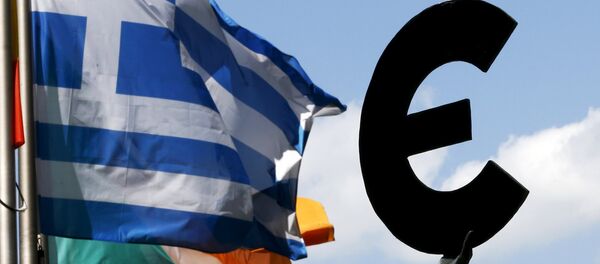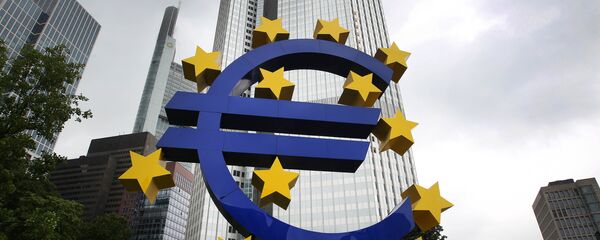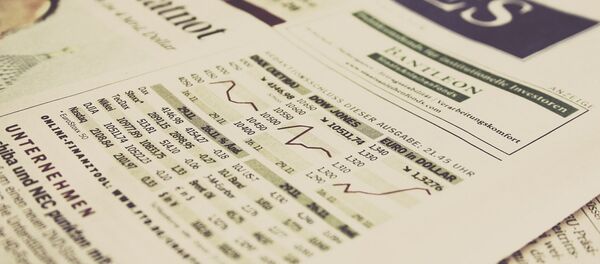Kristian Rouz – Top European Central Bank (ECB) policymakers are considering deepening stimulus policies in case the Eurozone faces a realistic threat of a recession.
The move would likely put ECB interest rates in negative territory, similar to the policies enforced by the Bank of Japan (BOJ), while the future of the ECB's multi-trillion bond-buying programme remains unclear.
"If inflation and growth slow, then a rate cut is warranted," an unnamed ECB source said, as quoted by Reuters.
Last week, the ECB said in a statement its interest rates would remain at their current zero-to-negative levels in the near-term. Policymakers touted the stability of monetary policy ahead of the important transition of power at the ECB – as President Mario Draghi is leaving his position this autumn.
READ MORE: European Central Bank (ECB) Faces Leadership Struggle Amid Slowing Eurozone GDP
Investors believe the ECB is unlikely to cut rates anytime soon, resulting in the euro rising to its 2.5-month high of $1.1347.
"The Federal Reserve is likelier to cut rates than the ECB”, Thomas Flury of the Swiss investment bank UBS said. “And US authorities are likelier to be more sensitive than their European counterparts to an appreciation of their currency. Mr Draghi did not rule out a rate cut in press conference, but he did not raise expectations for one, either".
If the current trends continue, ECB officials say, a rate cut would be deemed necessary.
"I’ll give you five reasons for a rate cut", one of Reuters' sources said, adding that "exchange rates" are the main concern behind each of the reasons he would provide.
The ECB's main refinance rate remains at 0 percent, while rates for marginal lending facility are set at 0.25 percent.
The ECB's deposit rate, however, is negative, at -0.4 percent. The Eurozone's top governments, including Germany and France, can borrow euro liquidity at negative rates for up to a decade – with the ECB effectively contributing to the budgets of its borrower nations during said period.
READ MORE: Merkel Offered to Remove Greece from the Eurozone - Ex-Greek Prime Minister
Meanwhile, some experts say the euro in unlikely to appreciate further against the dollar, and an intervention by the ECB might not be necessary.
"Our recent research suggests that deterioration in data, as well as the pick-up in FX volatility, is now providing headwinds to the dollar. We, therefore, think the best of its gains may be behind us", currency strategist Claudio Piron of Bank of America said.
Officials also say the ECB has been providing easy credit to European companies and households for several years now, and yet corporate activity and consumer spending remain subdued.
This might suggest reforms on the fiscal policy side by top European national governments could assist the ECB's mission.






